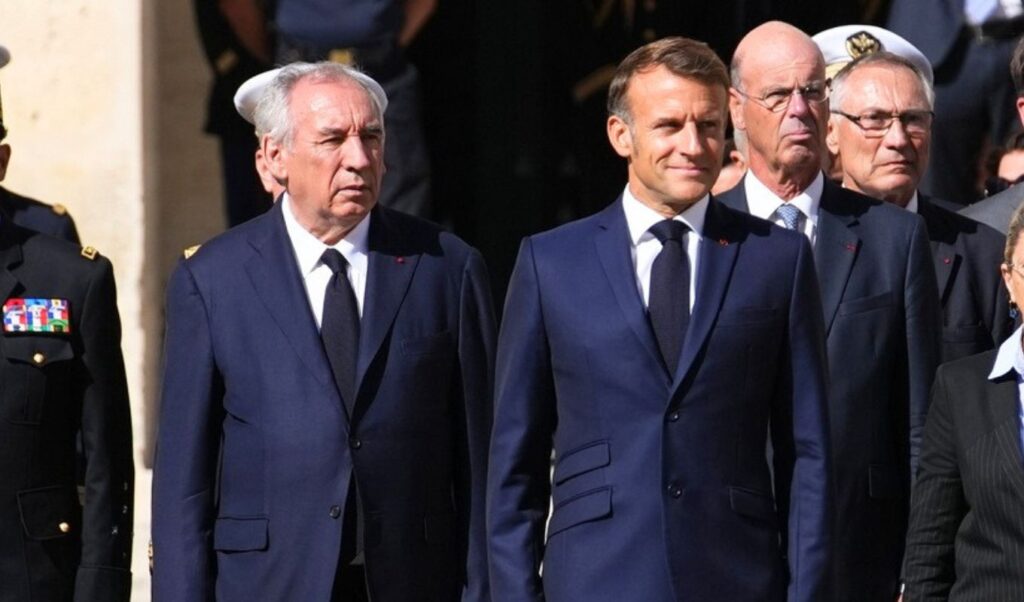Difficult times are predicted for France, due to a new period of political and economic turmoil, ahead of the likely defeat of the confidence vote that Prime Minister François Bayrou and the minority government face on Monday afternoon, with predictions suggesting he will fail to gather the necessary votes to win the proposal.
It should be noted that the French Prime Minister himself tabled the proposal, after struggling to convince his political opponents to support his 2026 budget, which envisioned massive cuts worth 44 billion euros. With this move, Bayrou aimed to reduce France’s budget deficit from 5.8% of gross domestic product (GDP) in 2024 to 4.6% in 2026. This is a level that remains well above the rules set by the European Union for its members.
France: What happens if Bayrou loses
It is noted that should the French Prime Minister fail to win the vote, his government will collapse, just less than a year after the fall of Michel Barnier’s last short-lived government in December.
This is likely to unsettle financial markets: The yield on France’s 30-year bond rose last week – alongside borrowing costs of other major economies – before retreating. On Monday morning, France’s 30-year bond yield stood at 4.35%, while the 10-year bond yield was at 3.43%.
Meanwhile, Emmanuel Macron will need to choose his fifth prime minister in less than two years if Bayrou’s government falls. The French president has taken responsibility for France’s current crisis, following the snap parliamentary elections he called last year.
This vote was intended to provide greater clarity regarding the balance of power in government. However, it instead caused new chaos and division, with parties from both left and right winning their respective election rounds. These feelings of anger have become more entrenched, with citizens threatening to take to the streets in the coming days.
“You can already consider that Bayrou is no longer prime minister”
It is noted that opposition parties from the left (the New Popular Front alliance) and far-right (National Rally) have declared they will not support Bayrou’s government after prolonged disagreements over the budget and proposed spending cuts, tax increases, and proposed freezing of public expenditure. His proposal to reduce two public holidays in France also sparked strong reactions.
Bayrou has characterized Monday’s confidence vote as an existential moment for France, stating last week on BFMTV that the situation is “serious and urgent”. Jean Claude Trichet, former governor of the Bank of France, told CNBC on Monday that Paris faces “the combination of a difficult situation regarding fiscal balance and a very difficult situation, politically”.
“I understand that the prime minister wanted to put all political parties before their responsibilities, asking them to acknowledge that there was a problem… Unfortunately, for political reasons, the far right and the left, including the Socialist Party, decided it was not in their political interest to play the game of continuity with Bayrou,” he told CNBC, adding:
“You can already consider that Bayrou is no longer the prime minister.” The vote is scheduled for Monday afternoon, with results expected after 5 p.m. local time (6 p.m. Greek time). According to Politico, the vote should take place around 7 p.m. or 8 p.m. (local time) and will last about 30 minutes, after which the President of the National Assembly will announce the results.
Arthur Delaporte, a Socialist Party MP who initially offered his support to Bayrou but has since changed his mind, said his party could not support a “blind” confidence vote and that the government had proposed too many budget cuts, too quickly.
“[Bayrou proposed] too many cuts, too many cuts to public services, pensions and social benefits and this is not acceptable. Today we see that there is social anger against the government and we believe this is important to take into account, and Bayrou did not see this,” he told CNBC’s Charlotte Reed in Paris on Monday.
France’s future
While economists and geopolitical analysts see Bayrou’s defeat as inevitable, “the most interesting thing is what will happen next,” strategic analysts noted.
“President Macron is expected to appoint a new prime minister who could secure a majority to pass the budget. This would likely require support from center-left Socialists, as the right-wing populist National Rally party has called for snap parliamentary elections. There are also general strikes scheduled in France for September 10 and 18,” Deutsche Bank noted.
Macron is considered likely to appoint Bayrou’s successor as soon as possible. “At the beginning of last week, France’s fiscal situation was a really pressing issue for markets, along with the massive UK bond sell-off, but the US bond rally has somewhat reduced pressure from this. Nevertheless, both countries remain in a precarious situation if global interest rates recover,” Deutsche Bank added.




